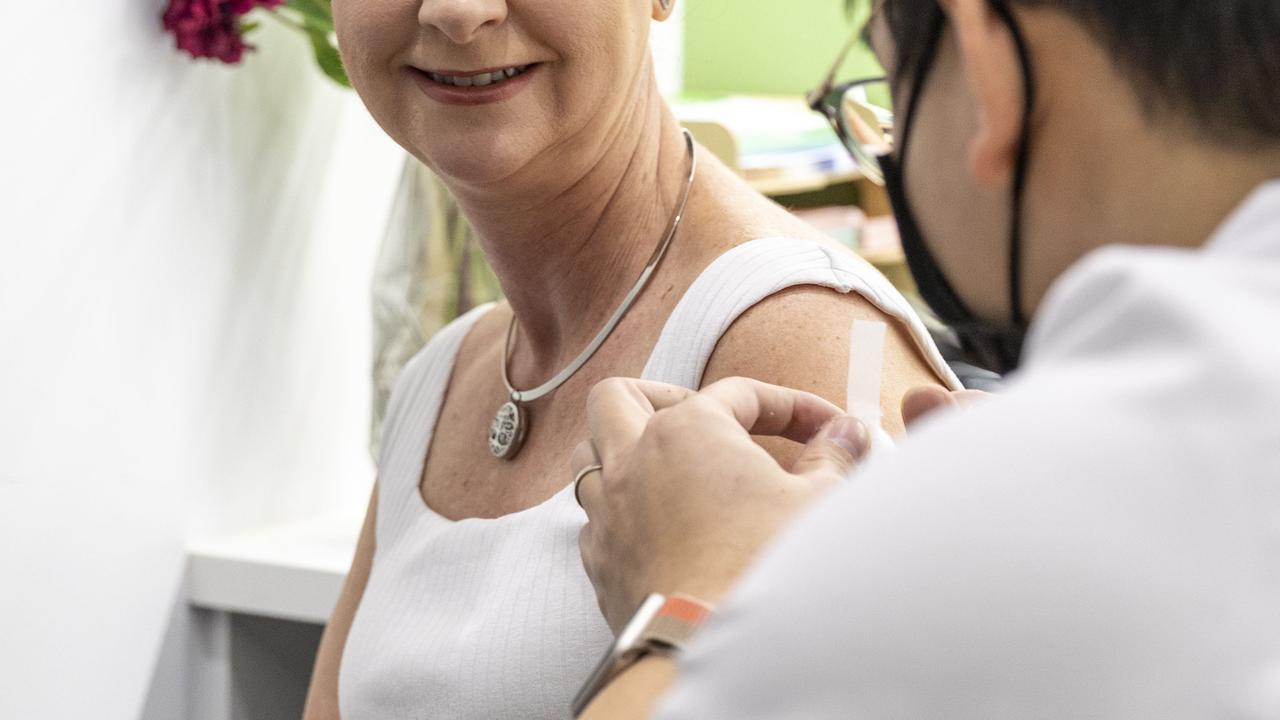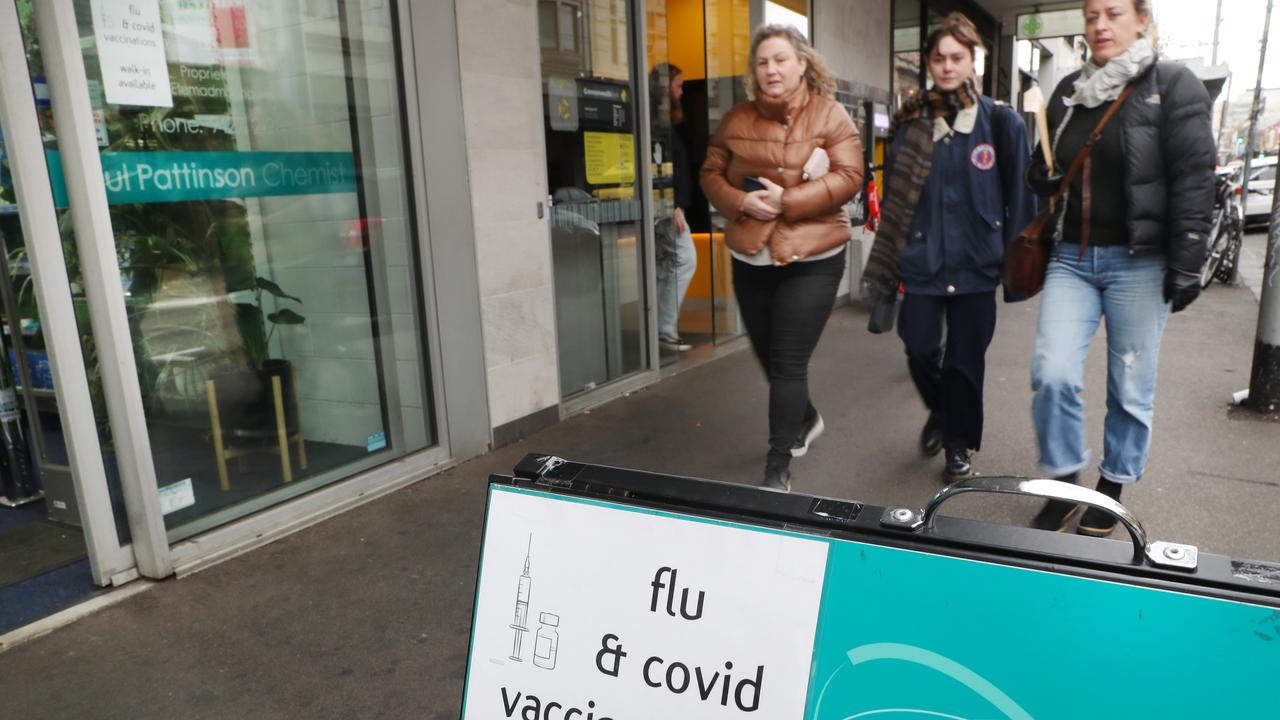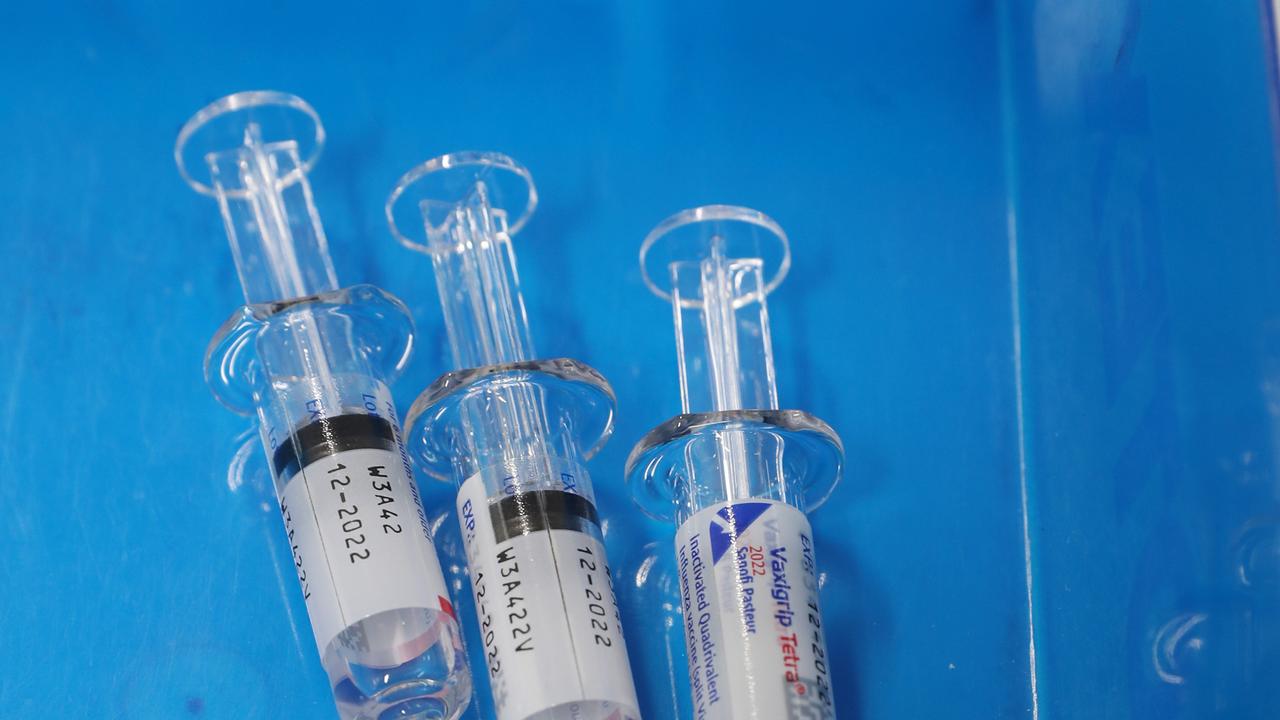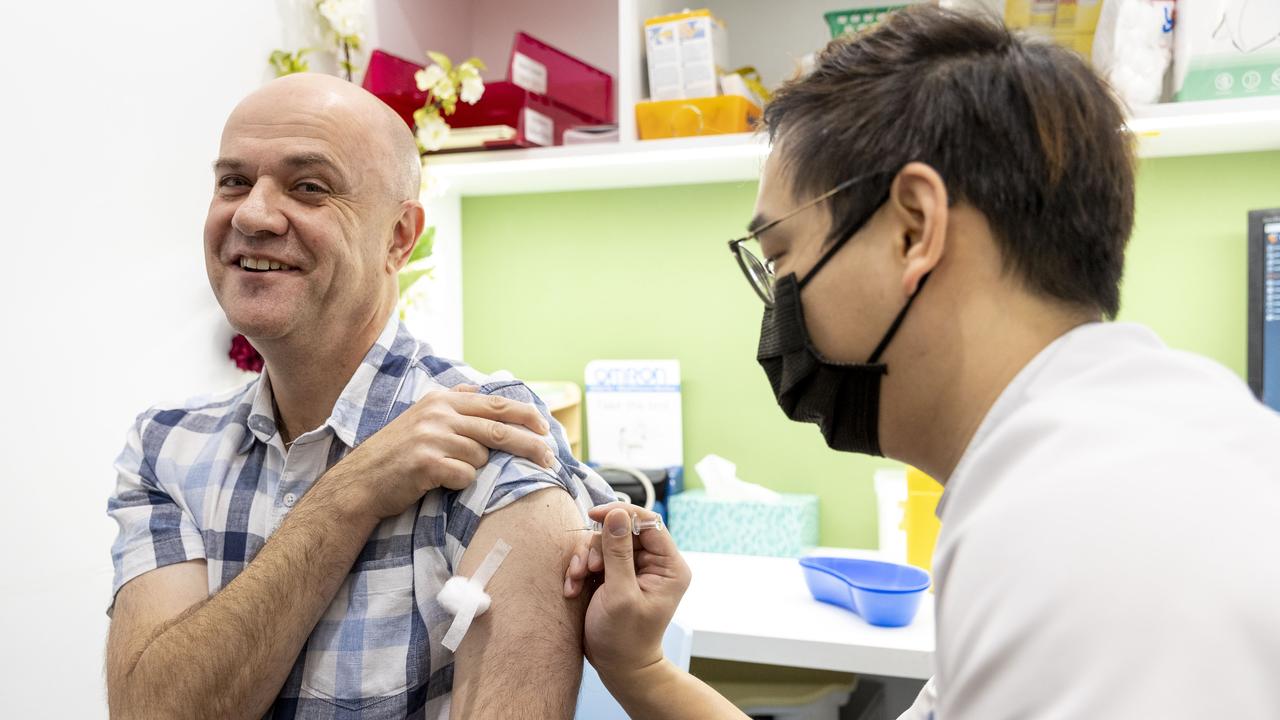Big change to advice on Covid immunity as new subvariants put pressure on health system
Two new Covid-19 subvariants are pushing up cases across the country, prompting authorities to revise immunity guidelines.
Two new Covid-19 subvariants are pushing up cases across the country, prompting a fresh warning for Australians to protect themselves this winter.
There were more than 40,000 new virus cases across Australia in the past 24 hours.
A new wave of Covid-19 infections is being driven by the BA. 4 and BA. 5 Omicron subvariants, according to a statement released by the Australian Health Protection Principal Committee (AHPPC) on Friday.
Almost 4000 people are receiving treatment for Covid-19 in hospital and 141 are in intensive care.
“We’re facing a really big threat,” Australian Medical Association vice-president Chris Moy told the ABC on Monday morning.

“I have not heard health authorities so worried for quite a period of time.
“We‘re extremely worried about facing BA. 4 and 5 Omicron subvariants, which are more infectious, cause more reinfections and severe disease, because it looks like they’re more likely to go down into your lungs.”
The AHPPC said the new subvariants could more easily evade immunity and were likely to cause rates of reinfection to rise among those who had previously been infected and those who were fully vaccinated.
Reinfection can occur as early as 28 days after recovery from a previous Covid-19 infection, a big drop from the previously advised 12 weeks of immunity.
There are almost 4000 people being treated in hospital for Covid-19 across Australia, including 141 in intensive care.

“More people are ending up in hospital just when our hospitals are chock-a-block full because they have been neglected for so long,” Dr Moy said.
“To some degree we have been like frogs boiled slowly, and we’re accepting this death rate which has continued on.”
There have been 10,225 deaths since the beginning of the pandemic.
Dr Moy said in the next five to 10 weeks Australia is set to enter “a much worse phase” of the pandemic.
The committee warned the new subvariants could wreak havoc across the country to a similar degree as the Omicron BA. 1 subvariant in January this year.
“We expect that this wave will lead to a substantial increase in infections, hospitalisations and sadly deaths at a time when our communities and health systems are already under strain,” the committee said.

As of Monday, the fourth dose of the vaccine opened up to an additional 7.4 million people.
Adults aged 30 to 49 years are now eligible to receive a winter booster dose, while those aged 50 to 64 are strongly recommended to take up the fourth shot.
“What we need you to do is have as many of the Covid vaccines as you are eligible for,” Dr Moy said.
The winter booster is recommended for those who received their first booster dose or were infected with Covid-19 at least three months ago.

The AHPPC has reminded the public to wear a mask outside, particularly on public transport, and to stay home and get tested if you have any symptoms.
Dr Moy also advised against relying on a rapid antigen test, warning that they have a success rate of just 60 per cent.
If you have any symptoms and are at higher risk of severe illness, you should speak to your GP immediately to get access to oral antiviral treatments.
As always, washing hands thoroughly throughout the course of the day is a great way to reduce your chances of catching the virus.



